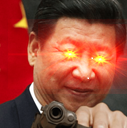Welcome again to everybody! Make yourself at home. Enjoy some musics. In the time-honoured tradition of our group, here is our weekly discussion thread.
● Matrix homeserver and space
● Theory discussion group on Matrix
● Find theory on ProleWiki, marxists.org, Anna’s Archive and libgen; audio versions by Socialism For All


I’m currently reading, What Is to Be Done? by Nikolay Chernyshevsky. Does the title sound familiar? This novel had a considerable influence on Russian Marxists and particularly Lenin: he read the book countless times, practically knew it by heart, and even named his prominent pamphlet after it. Within the story, we follow Verochka, who escapes the clutches of a controlling mother and an arranged marriage in the pursuit of starting a sewing cooperative. It’s a great read so far!
I started it recently, but I’ve only read a chapter or two because I’m reading five other books simultaneously. I liked it so far. I like his “immature” style that seems to have influenced Lenin. I heard all the Bolsheviks knew it by heart and used it as a common language. I’m wondering what could be our equivalent.
Very interesting point about wondering what an equivalent could be, and I’ve been thinking the same as I read it. I’ve also wondered about my own writing and why everything I write about focuses on the pitfalls of capitalism instead of an attractive depiction of a socialist society. A shining beacon might be more useful than a reminder of the dark.
I’m studying Utopianism right now, so my thought is that we shouldn’t waste too much time dreaming about the minutia of a future society, but we definitely need to remind ourselves and others what we’re fighting for. This can be in the imagined future, but also in showing what AES has already achieved.
I don’t think it would necessarily be utopian, but a scientific examination into what one could foresee the transition into socialism looks like, and why it would be so attractive for someone who may not know anything other than their life under capitalism (or could provide revolutionary optimism for a downtrodden comrade). I’ll leave a quote from a red sails article by Roderic Day that might elucidate this idea better than I can:
“I genuinely think that if one can truly imagine in fiction a viable transition from our current state of affairs into a better one, that plays a huge role in mustering the conviction to assert that it can be achieved in reality. Conversely, if we cannot even imagine what a transition might look like in our wildest dreams, any “real” organization is doomed.”
After all, Chernyshevsky envisioned something that was likely absurd in his time, with a woman starting her own sewing cooperative, yet inspired revolutionaries for years to come with his foresight and vision.
I totally agree, in Half Earth Socialism they propose a sort of Scientific Utopianism. Their problem is they didn’t cover enough ground to truly call their proposal holistic. Also, they foolishly try to replace ML rather than using it in a anti-dogmatic way.
Interesting, I’ll have to check that out!
I’ve started reading it in December, and I’m also really liking it! Way ahead of it’s time compared to mainstream Russian politics and philosophy of the 1860s, and despite not coming into contact with Marx & Engels, Chernyshevsky’s own philosophy is remarkably close to dialectical materialism. It’s a book that should definitely be more widely known, especially among Marxists. A rare piece of great revolutionary literature!